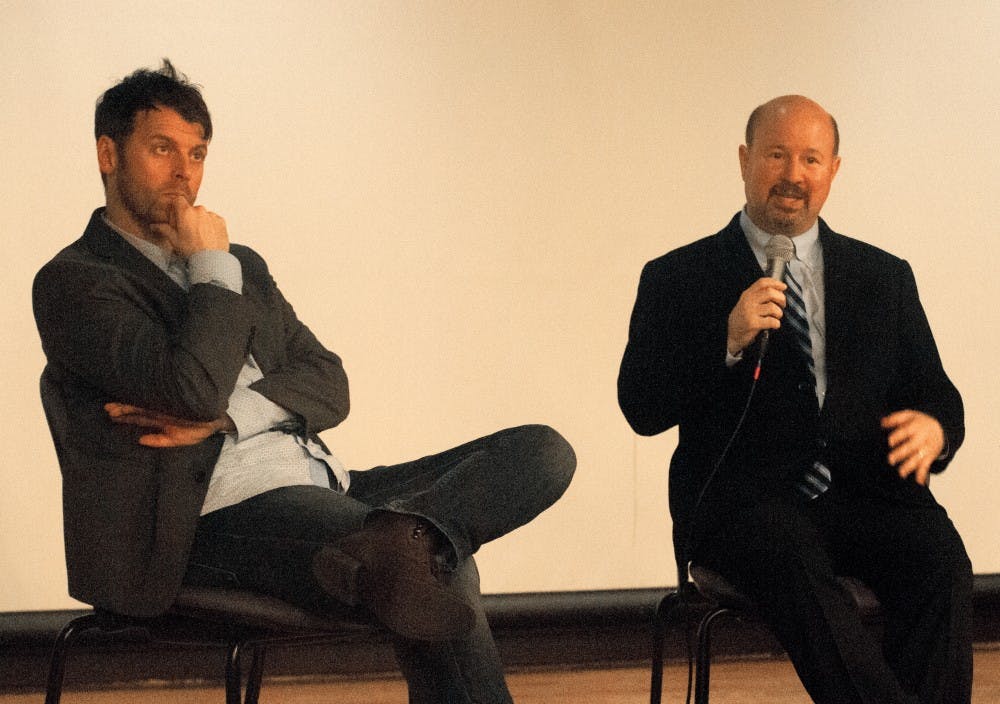
Last night at the Penn Museum, two leading climate change scientists presented the political resistance scientists face in combatting climate change.
The event was part of the Penn Humanities Forum, which features a series of panels and speaker events meant to educate members of the Penn community in wide-ranging academic topics.
Rutgers University Professor Benjamin Horton talked about the nature of climate change and related problems, showing statistics and pictures that convincingly illustrated the seriousness of climate change and global warming. He said awareness of the problem in the political arena is apparently skewed, as many politicians deny the existence of climate change as a serious threat to people’s lives .
Penn State climatologist and geophysicist Michael Mann continued to focus on the political side of the climate change problem. Mann pointed out that politicians who have vested interests in the fossil fuel industry often abuse their power to force scientists to refrain from publishing research that might hurt the politicians’ partners.
Mann is deeply concerned that society suffers from a “loss of good faith discussion” because a huge amount of time and effort have been put in the wrong place. “Hopefully, we will get past this poisonous and meaningless debate about whether [global warming] does exist or not and turn on the worthy discussion of what we can actually do about the problem,” he said.
During the question-and-answer session, an audience member raised doubts about whether developing countries like China and India are actively fighting climate change. Mann clarified that China is actually ahead of the United States in exploring sustainable resources.
Developed countries sustained practices that caused carbon dioxide emissions for about two centuries before developing countries started to burn coal. This sort of “buck passing” is another example of bad faith discussion, according to Mann. “The U.S. should set a good example in the world,” he said.
Horton and Mann emphasized that modern society bears an intergenerational responsibility on its shoulders. “We should make sure that we don’t leave behind a broken planet for our children and grandchildren,” Mann said.
The Daily Pennsylvanian is an independent, student-run newspaper. Please consider making a donation to support the coverage that shapes the University. Your generosity ensures a future of strong journalism at Penn.
DonatePlease note All comments are eligible for publication in The Daily Pennsylvanian.




